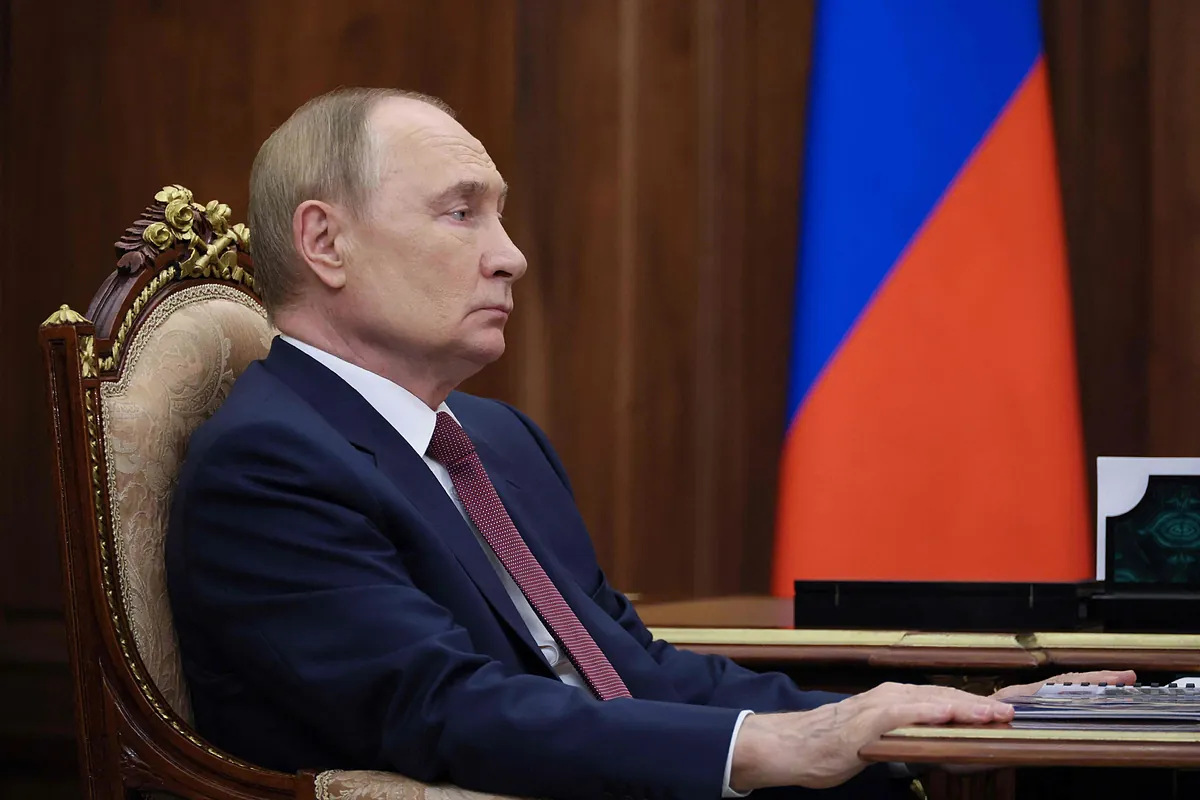"We will not go beyond the four regions." Last spring, during a video conference with the Ministry of Foreign Affairs, Vladimir Putin assured that Russia would limit its aspirations to the territories already annexed to the Federation through the referendum of September 2022. But then he introduced an important nuance: the president flatly rejected the possibility of a"freeze" of the conflict in Ukraine, that is, a Korean-style truce, without any recognition of the new realities created on the ground.
The list of demands
Now we finally know what Moscow is asking for to stop the fighting and achieve peace. In short, it demands Ukraine's withdrawal from Luhansk and Donetsk, the two regions that make up Donbas, including the areas not yet occupied by the Russian army, as well as recognition of the current front line as the border in the Zaporizhia and Kherson oblasts. These are easy demands to interpret. More complicated are those that are not based on geographical criteria: a"commitment" not to attack other Ukrainian territories or third countries; recognition of Russian as an official language in Ukraine; freedom of worship for the Russian Orthodox Church; acceptance of the annexation of Crimea, occupied since 2014; and, finally, the lifting of sanctions imposed by the United States, the European Union, and other allies.
The most significant concession Moscow would put on the table would be to accept that Ukraine receives"security guarantees" similar to those in NATO's Article 5, although without joining the Atlantic Alliance. To reinforce this formula, the Kremlin would like such guarantees to come not only from the United States and Europe, but also from powers like China.
The background is clear: Russia wants to regain full freedom of action on the international stage without paying an additional price for the war. This is where a crucial point that was reportedly raised at the last meeting in Alaska arises. According to leaks circulated on Telegram channels close to the Kremlin, Putin has set Donald Trump an additional condition for signing a peace treaty with kyiv: the withdrawal of all charges supporting the arrest warrant issued by the International Criminal Court in The Hague. This obstacle, the Russian president reportedly explained, prevents him from even traveling to friendly countries like South Africa or Brazil.
The great enemy
The main development regarding possible Russian concessions was revealed yesterday by Steve Witkoff, Trump's emissary. According to him, the Kremlin would be willing to"enforce by law" the commitment not to attack European countries, even by incorporating this clause into the Constitution. However, it seems unlikely that Russia will accept such a demand. Putin himself has always called it"nonsense." At the St. Petersburg Economic Forum, he reiterated:"The legend that Russia is preparing to attack NATO countries is an implausible lie. A delusion that even those who spread it don't believe."
Meanwhile, Moscow continues to aim for"regime change" in kyiv. It's an open question. At the Anchorage press conference, after warning that he hoped Ukraine and Europe would not try to dynamite the negotiations"with provocations and intrigues," Putin put away some unread notes. Perhaps he avoided going into detail. But Volodymyr Zelensky is his greatest enemy, the man who has openly challenged him. Russia is unlikely to give up on that goal.
Act of faith
Since his speech on June 14, 2024, when he presented"another concrete and real peace proposal," Putin has not substantially changed his position. The so-called denazification remains a vague concept, while demilitarization will be put back on the table, with attempts to limit the number and type of weapons that kyiv can retain.
Beyond the nuances, the point on which Moscow is unlikely to budge is the presence of European troops on Ukrainian territory. The ultimate goal remains a"neutral and non-bloc Ukraine," as Putin stated on June 14.
In exchange for all this, he offers to respect the new borders. But to believe in that promise, without a constitutional commitment to back it up, would require a great deal of faith. After February 24, 2022, it would be almost an act of faith.

